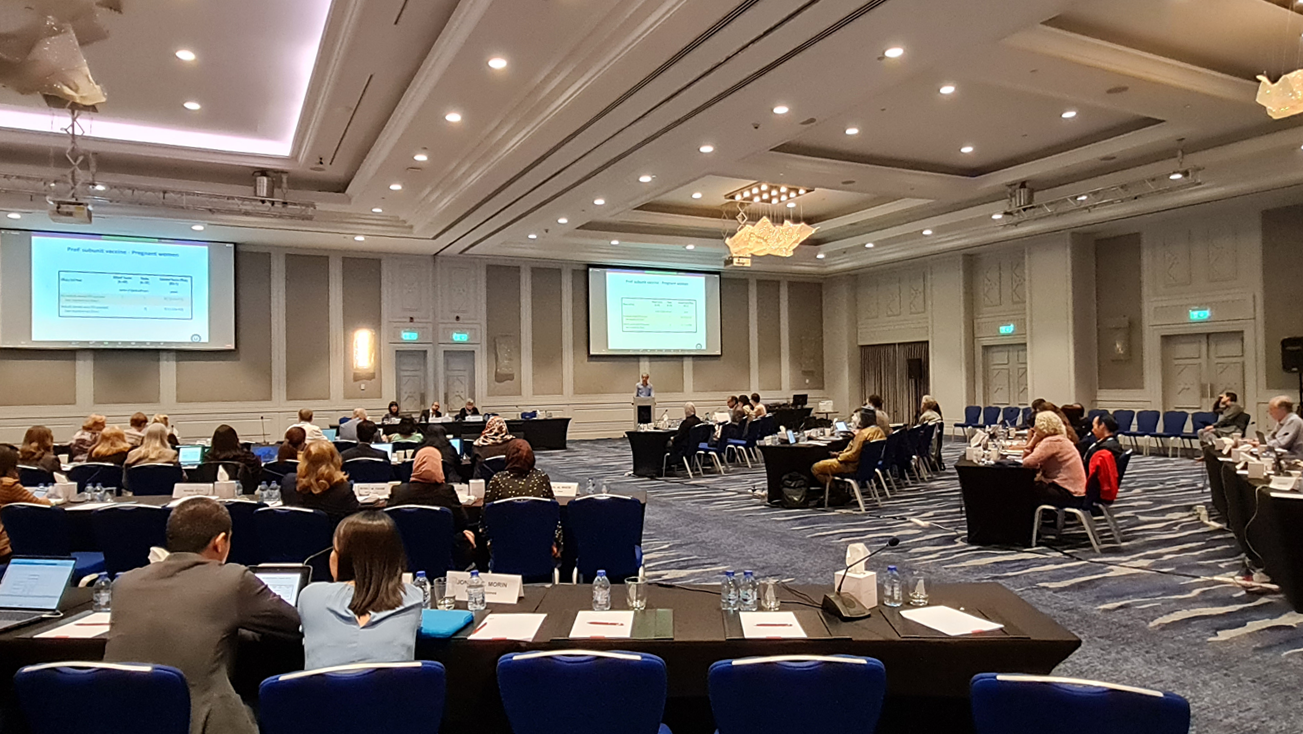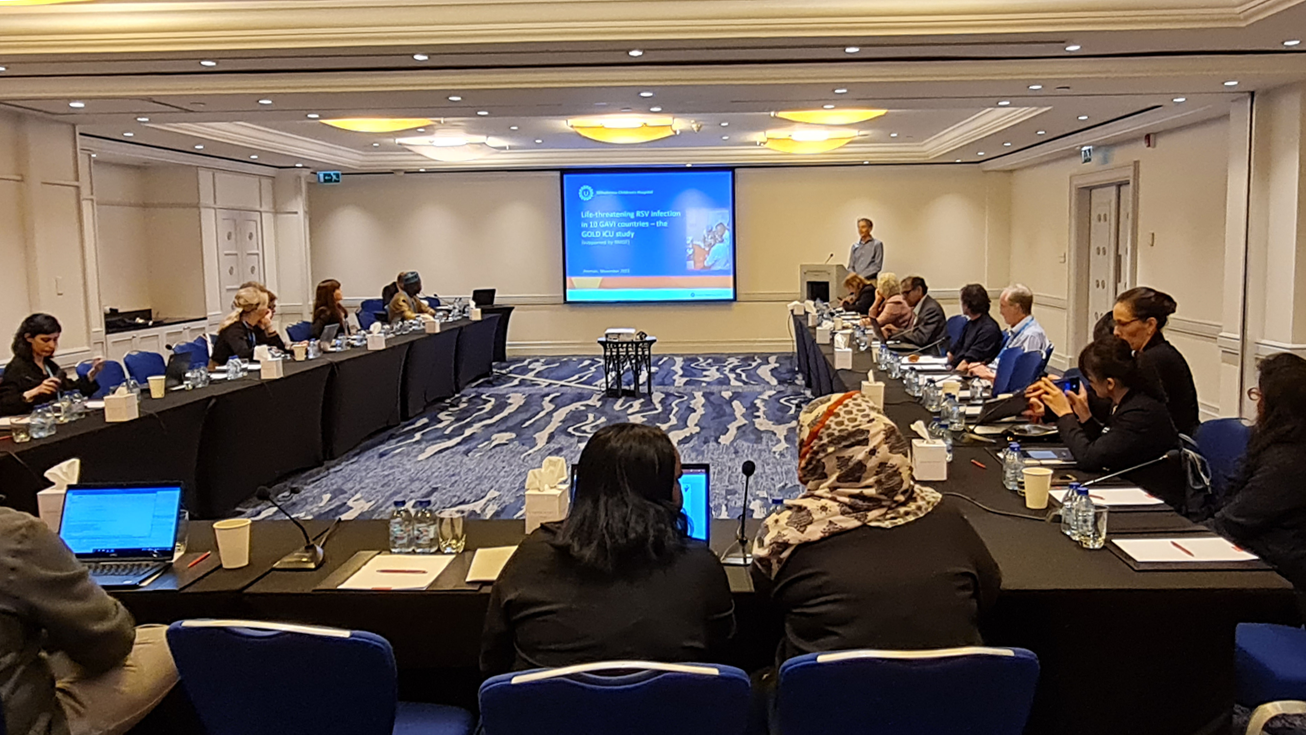 Participants at a plenary session
Participants at a plenary session
Cairo, 11 December 2022 – The WHO Global Influenza Programme organized a technical meeting in Jordan, together with the WHO Regional Office for the Eastern Mediterranean, to review progress in phase 2 of the respiratory syncytial virus (RSV) surveillance strategy.
The meeting conducted from 29 November to 1 December brought together laboratory and RSV surveillance focal points from 25 pilot countries globally. The strategy is an extension to phase 1 and is piloted in these counties to standardize RSV surveillance and provide evidence to support public health and inform RSV vaccination policy.
The meeting was attended by representatives from 9 countries in the Region, experts from RSV reference laboratories, the United States Centers for Disease Control and Prevention and academic institutions.
Country performance under the WHO RSV External Quality Assessment Programme in 2021 was highlighted, specifically the surveillance outputs provided regarding RSV seasonality and virus evolution before, during and after the emergence of severe acute respiratory syndrome coronavirus 2 (SARS-CoV-2).
Country representatives shared their experiences of the integration and sustainability of RSV surveillance in developing GISRS Plus, which is an expansion of the current GISRS.
Through the meeting, challenges and needs were identified. These include that the overall surveillance and public health response priorities are changing with the emergence of COVID-19, which must be considered while making sustainable plans for RSV surveillance.
 Discussions during a technical group session
Discussions during a technical group session
During the meeting, priority plans for 2023 were identified, including proceeding with ongoing RSV surveillance after transitioning from pilot projects. It will focus on end-to-end integrated sentinel surveillance of influenza, SARS-CoV-2 and RSV surveillance as a built-in component in national surveillance programmes.
In addition, the 2 phases of the RSV surveillance pilot project will be developed with a focus on whole capacity spectrum sentinel sites, virus detection, sequencing, bioinformatics and data analysis.
The structure of the GISRS Plus system will also be developed to fit in with RSV, influenza and SARS-CoV-2. WHO regional and global collaborative centres or reference laboratories will also be formalized for RSV and other respiratory viruses within the GISRS system. In addition, external resources and expertise will be engaged and collaboration with private sectors, including RSV vaccine manufacturers, will be explored.
The WHO Regional Office and headquarters will continue to provide technical support to the 25 countries to identify the burden estimate approach based on its priorities and capacities.
Related links
https://www.who.int/teams/global-influenza-programme/global-respiratory-syncytial-virus-surveillance








